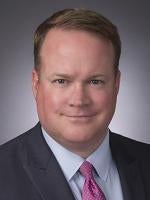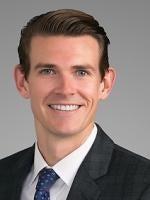The constant fluctuations in precedent at the National Labor Relations Board (“NLRB” or the “Board”) continue as the Board overrules another case decided under the Trump Administration. This time the NLRB has set its sights on the collection of union dues following the expiration of a collective bargaining agreement. On October 3, 2022, the Board issued its decision in Valley Hospital Medical Center, Inc. d/b/a Valley Hospital Medical Center and Local Joint Executive Board of Las Vegas (available here) overruling the 2019 case of the same name.
The Board’s Shifting Requirements With Respect to Dues Checkoff Following Contract Expiration
A dues checkoff arrangement is one where the employee authorizes their employer to deduct union dues from his or her wages and remit them to the union.
While Section 8(d) of the National Labor Relations Act generally prohibits employers from unilaterally changing the terms and conditions of employment without bargaining with the union, the Board has historically held that an exception existed for dues checkoff arrangements following the expiration of a collective bargaining agreement. For decades following its decision in Bethlehem Steel, 136 NLRB 1500 (1962), the NLRB held that dues checkoff arrangements, similar to provisions such as management rights clauses and no-strike clauses, become unenforceable when a collective bargaining agreement expires.
In 2015, the Board reversed course holding that dues checkoff provisions were subject to the statutory bargaining requirement to maintain the status quo after a contract expires. Lincoln Lutheran of Racine, 362 NLRB 1655 (2015). Then, in 2019, the Board restored its longstanding rule that union dues checkoff provisions expire with the collective bargaining agreement. Valley Hospital Medical Center, Inc. d/b/a Valley Hospital Medical Center, 368 NLRB No. 139 (2019).
Valley Hospital II
Years of litigation before the NLRB resulted in a 2021 decision by the Court of Appeals for the Ninth Circuit that remanded the case back to the Board “so that it may have an opportunity to provide an adequate explanation for its approach to dues checkoff by explicitly addressing the precedents cited by the Union that appear to contradict the ‘contract-creation’ rationale used in this case.”
On remand, the Board reversed its 2019 decision holding that “a dues-checkoff provision properly and reasonably belongs in the broad category of mandatory bargaining subjects that Section 8(a)(5) of the Act bars employers from changing unilaterally after the expiration of a contract, rather than in the small handful of exceptions to the rule.” Members Ring and Kaplan dissented concluding the termination of dues-checkoff provisions . . . has been a legitimate economic weapon.” The NLRB also held that this decision would apply retroactively to all pending cases.
Key Takeaways
This decision represents another step this Board has taken in support of President Biden’s pro-labor agenda. Employers have lost an economic tool that could have been used to persuade a union to enter into a new or successor agreement.
Potentially more importantly, this decision underscores the volatility at the Board. For nearly fifty years, with the exception of the momentary deviation between 2015 and 2020, employers, employees and unions could depend on the Board’s stance regarding dues checkoff provisions remaining stable and plan accordingly. With the rapid, drastic shifts between standards at the Board, affected parties might not be able to rely on the relative stability of certain precedents.
Developments at the NLRB are likely to continue at a rapid pace, we will monitor developments in this area and provide updates when relevant.






 />i
/>i

